Lemon balm is a perennial herb of the mint family native to Iran, south-central Europe, the Mediterranean Basin and Central Asia. Lemon balm microgreens have wrinkled, oval-shaped leaves with a crisp lemony scent, tempting many home chefs to add them to salads, soups, and other dishes. Lemon balm has a long and glorious therapeutic history. Its essential oils have been extracted to help with digestive difficulties, and its leaves have been utilized in a variety of teas.
In the outdoor environment, the lemon balm plant is an aggressive and fast-growing plant that can reach a height of over one foot in a single season. Due to this rapid growth, many gardeners do not plant Lemon balm in their herbal tea garden, and they prefer to grow it in containers.
If Like to know more about microgreens, check these articles:
<<What Are Microgreens >> and <<Top 5 Types Of Microgreens>>
Lemon balm microgreens
Lemon balm is an herb that can be used to treat various ailments. In addition to its medical properties, this plant has a pleasant lemon flavor and is thus an appealing complement to various dishes. Lemon balm is an exciting microgreen since it possesses unique medicinal capabilities in addition to its appetizing flavor.
Another benefit of lemon balm microgreens is that they appeal to children since they are simple to cultivate, have a pleasant appearance, and even have excellent fragrances and taste. Their leaves are delightfully fuzzy to touch and leave a faint lemon aroma on the fingers. As a result, if you have some extra space in your backyard or garden, try growing this nice, tiny microgreen with your kids.
Growing lemon balm microgreens indoors
To sprout and thrive, lemon balm microgreen seeds require a lot of sunlight. To start, plant your microgreen seed in a shallow pot or dish with just enough soil to barely cover the seeds.
Germination should take 10–14 days if the container has enough water to keep its soil from drying up. In order to grow lemon balm microgreens successfully, you will need the following items to get started:
- microgreen tray or flower pot container with holes
- Organic beginning sterile soil mix
- Clear or black plastic lids
- Organic seed
- spray mist bottle
- Scissors
Lemon balm seeds germination seven days after planting
Prepare the Soil
A slightly sandy, well-drained soil is ideal for lemon balm plants. In addition, the pH of your soil should be neutral to acidic. This suggests that a hygienic soil (peat moss and perlite) would be a good fit for this microgreen. Choose a container with drainage holes for your lemon balm microgreens to reduce the possibility of the herb becoming over-watered.
Fill the Trays with Soil
Pour soil into the tray. Smooth and flatten the soil with a block or your hand without compacting it. Water the soil until the water in the tray runs out of holes. Stop irrigating at this point and allow the excess water to drain from the pot.
Lemon balm microgreen seeds
Sow the Seeds
Sprinkle the seed evenly over the soil in the tray. Mist your seeds using the spray bottle. Just keep in mind that the soil should be moist throughout but not soaking wet.
Place a cover over the seeds
Use soil as a seed cover to reduce the work and time required to develop lemon balm microgreens. You can also use a cap or lid to keep the seed and soil from drying out.
Allow light exposure
As the lemon balm sprouts germinate, the microgreens should be exposed to light. If the microgreens start to grow tall and leggy, it is a sign that they need slightly more light. For 6 to 8 hours, place the trays on a windowsill facing south or under a grow light.
Lemon balm five days after germination
Water the Growing Microgreens
Once or twice a day, check the microgreen and water as needed.
Harvest lemon balm microgreens
Lemon balm microgreens seeds are lovely plants when grown as microgreens. Lemon balms are a slow-growing plant that might take up to a month to mature into microgreens. This means that when growing this plant as a microgreen, patience is essential. After three or four weeks, you can harvest them with scissors or a sharp knife.
You can also begin picking lemon balm microgreens as soon as the first couple of leaves appears rather than harvesting all of them at once. Take only what you need for your dinner and leave the rest to continue growing for another day’s crop.
Lemon balm twenty days after germination
Health Benefits of Lemon Balm
There are many herbal medications that are typically made from the leaves of the lemon balm plant. Lemon balm tea has traditionally been used to cure digestive problems and pain, such as menstrual cramps and headaches. Lemon balm tea also has a slight calming effect, making it an excellent home remedy for sleeping problems or otherwise a soothing tea to drink before bed. We will look at some of the advantages of lemon balm microgreens and lemon balm tea in the following paragraphs.
Helps with Digestive Issues
Today, many herbal medicines such as lemon balm, German chamomile, and fennel are used to relieve colic discomfort in newborns. These remedies assist in alleviating crying and, if taken regularly, may even cure colic completely.
Lemon balm microgreens or tea may also aid in relieving stomach discomfort, cramps, and gastric ulcers, which are all frequent digestive problems.
Helps to prevent heart disease
Lemon balm microgreens are generally beneficial for heart health. Lemon balm can lower triglycerides and improve cholesterol production. It can also help lower blood pressure and reduce harmful LDL cholesterol if consumed regularly.
Lemon balm five days after germination
Reduces Stress and Anxiety
As mentioned above, lemon balm tea has a soothing effect that can help you relax after stressful days. This is because lemon balm leaves contain anti-anxiety drugs similar to those found in Cyracos products.
Improves asleep
The relaxing scent of lemon balm microgreens and tea may help alleviate insomnia and other sleep disorders. Two studies published by the University of Michigan reveal that lemon balm improves sleep health.
Promotes the health of the brain
Lemon balm tea has been demonstrated to improve mental cognition. It may also help with the symptoms of major neurological illnesses. When consumed daily, lemon balm tea may help to alleviate symptoms of Alzheimer’s disease in its early stages.

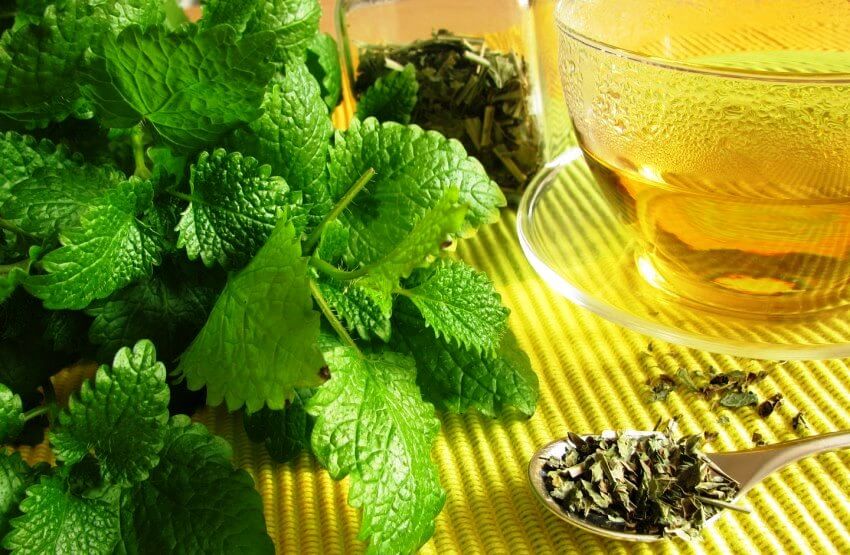
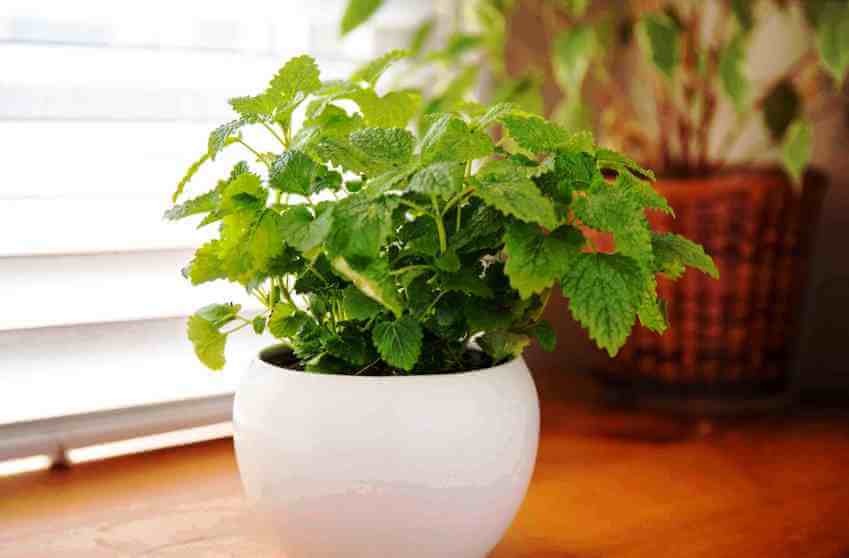
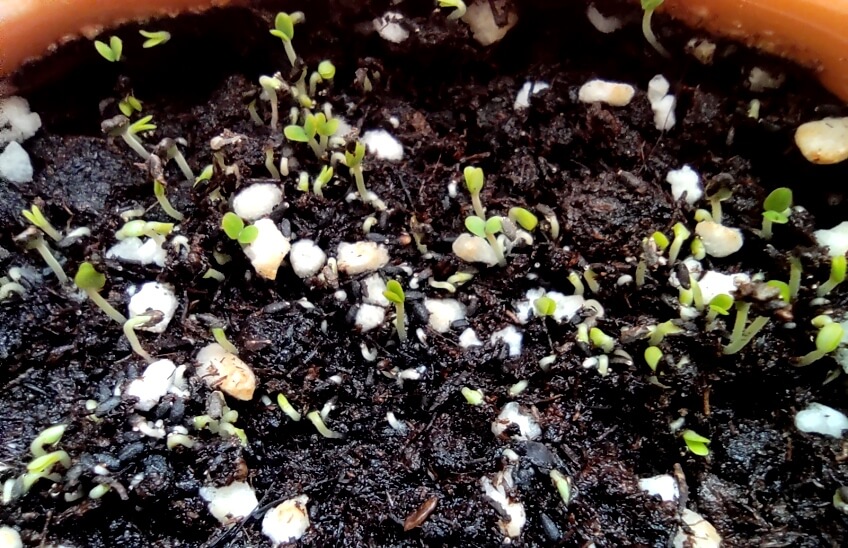
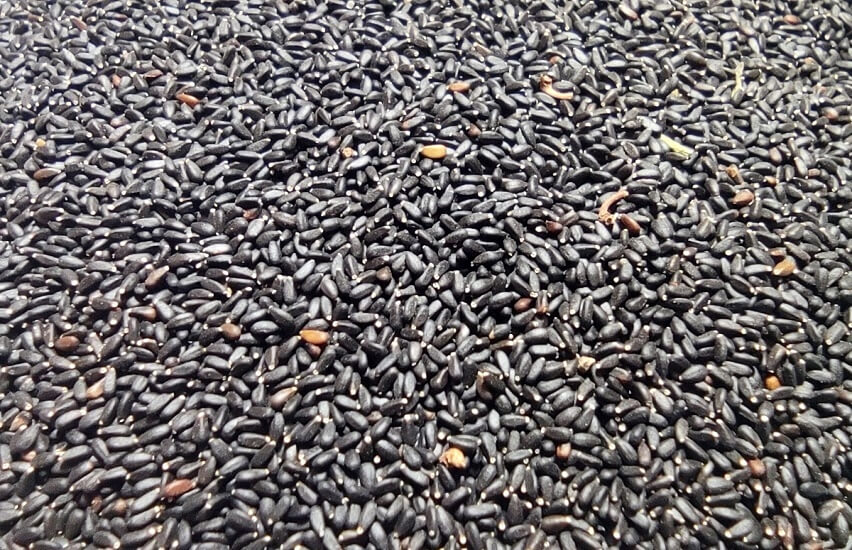
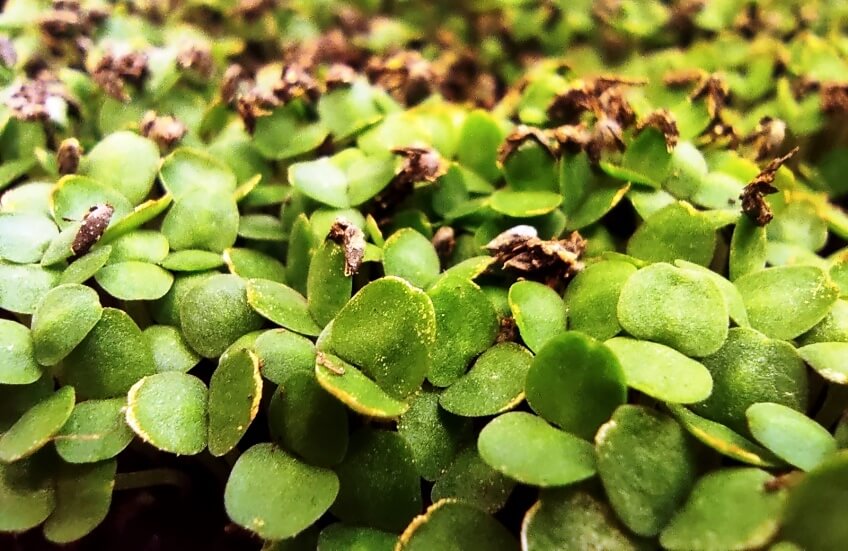
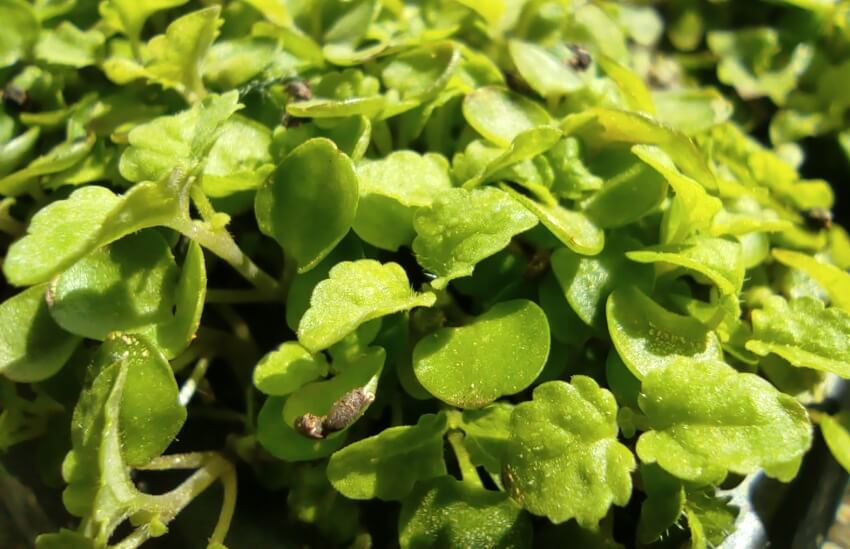
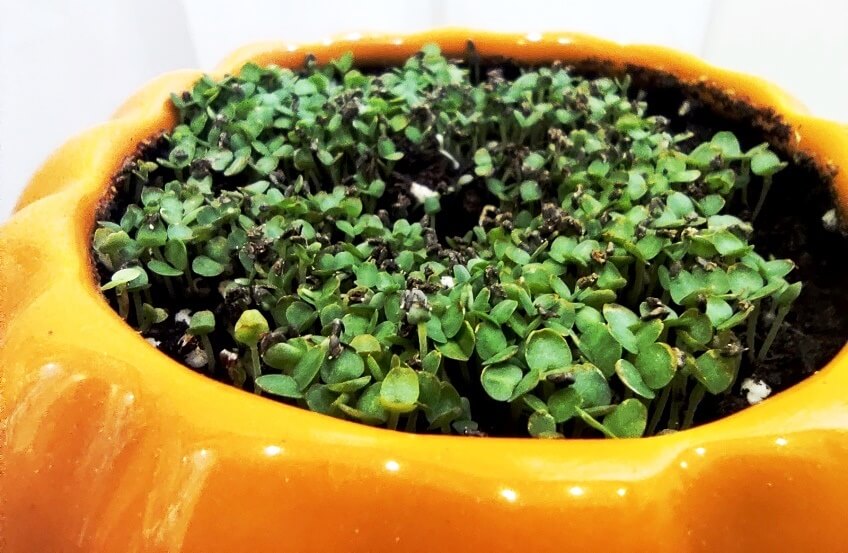


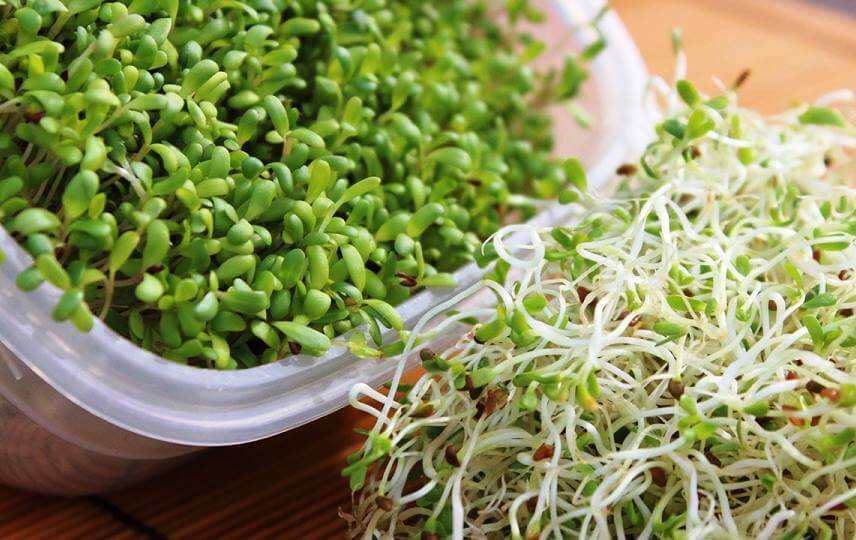
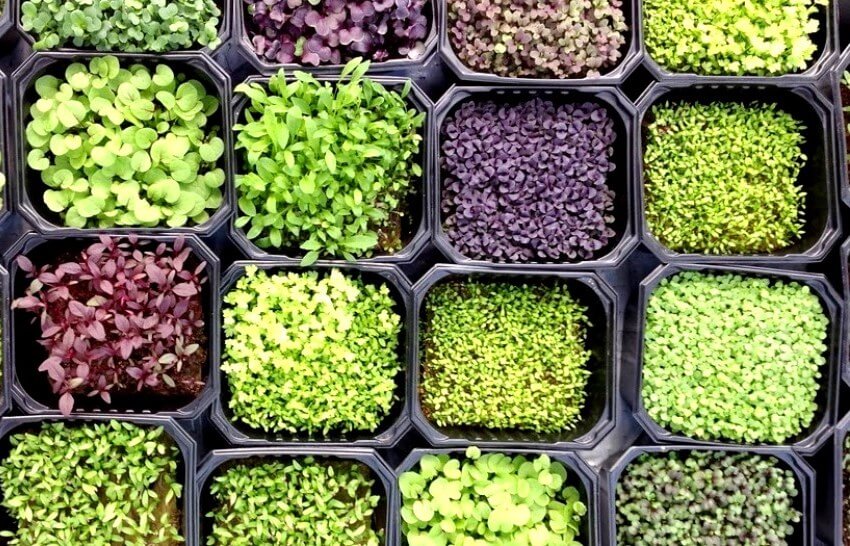
Cool. I had no idea that could be eaten as micro greens!